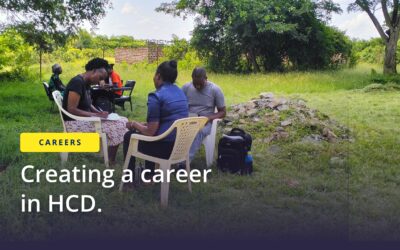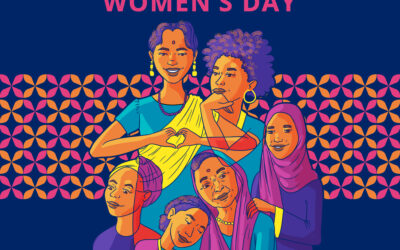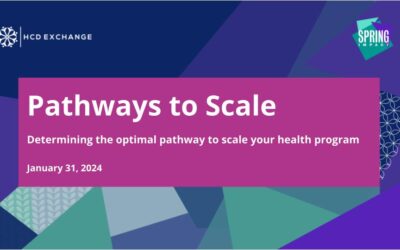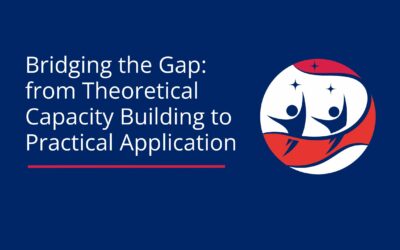People’s sexual and reproductive health needs, particularly in the global South, are evolving along with the advancement of the world as we know it. While technology has made it easier to access information on sexual and reproductive health (SRH), many underserved groups in the Global South still lack access to sufficient knowledge and services on this subject. This is despite the fact that sexual and reproductive health is a crucial component of human development. However, innovative approaches like the application of human-centered design (HCD) in developing user-centered SRH products and services are turning this reality around. Its application in the design of health services is contributing to the decentralization of access to primary SRH care for underserved communities and populations.
Let’s take a hypothetical example of Sarah, a 19-year-old from an underserved population in Sub-Saharan Africa. Sarah, like her peers, has never had any formal instruction on SRH. Her sole source of information is her age group’s social circle. Despite her interest, she is reluctant to consult doctors to ask for advice because of cultural customs and the shame associated with SRH matters. Sarah’s health, as well as her schooling and future opportunities, are all impacted by the lack of access to information and services. This is where HCD comes in as a useful approach for unpacking marginalized communities’ challenges, desires, needs, preferences, and aspirations. SRH products and services are increasingly being created using user-centered design to specifically cater to underserved populations’ unique needs and preferences like Sarah’s.
A good example to use as a benchmark is the Adolescents 360 (A360) program’s laudable gains in Tanzania, Nigeria, and Ethiopia. This intervention is leading the way in enhancing the health and well-being of frequently neglected and ignored girls by addressing the unmet demand for modern contraception innovatively. Through its multi-country program, A360 provides access to various modern contraceptive options and meaningfully involves adolescents, young women, and their communities through social and behavior change communication efforts. The program has tackled supply chain challenges and has worked towards enhancing health systems to meet the SRH needs of teenage girls.
Across Ethiopia, Tanzania, and Nigeria, where millions of adolescents have received vital health information and services, A360’s effects can already be felt. Girls are being empowered by the program to take charge of their lives and make informed choices regarding their reproductive health. But, A360 aims to do more than make contraception available. It also seeks to dismantle stereotypes and alter how society perceives adolescent girls’ needs for intentional involvement in co-creating SRH solutions that consider the person holistically from an all-around focal point. Hence, people-centered design methods enable SRH solutions that are effective, accessible, and culturally appropriate.
As we marked the International Women’s Day 2023, this year’s theme ‘DigitALL: Innovation and technology for gender equality,’ was a fond reminder for players in the public health space to innovate borderless solutions that place the human at the center, and that are efficient, relatable and meaningfully created. Giving young girls in the global south the resources and support they require to thrive and achieve their goals should be our collective objective. In so doing, girls like Sarah and other underserved groups can then access in-demand SRH knowledge and services that previously were systematically unavailable.
This thought-piece has been written by Muthoni Wachira, the HCDExchange Project Director




